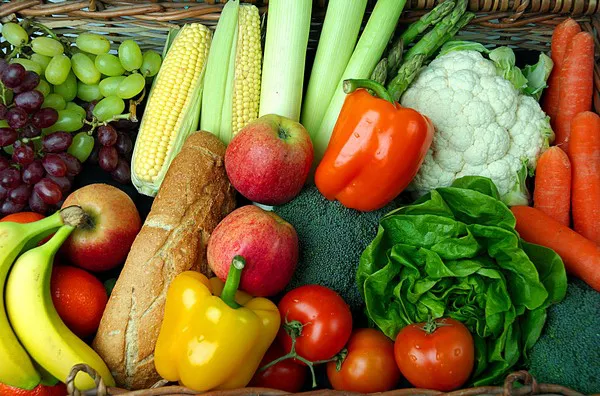A balanced vegetarian diet can provide an array of essential nutrients, but it’s natural to wonder whether vegetarians need to take vitamins to ensure they meet all their nutritional needs. While many vegetarians thrive on plant-based diets, there are specific nutrients that may require extra attention to prevent deficiencies. In this comprehensive guide, we’ll explore the key vitamins vegetarians should be mindful of, the reasons behind potential deficiencies, and when vitamin supplements might be necessary to support a healthy vegetarian lifestyle.
Understanding Vegetarian Diets
Before diving into the topic of vitamins, let’s clarify what a vegetarian diet entails. Vegetarians abstain from consuming the flesh of animals, including meat, poultry, and seafood. However, vegetarian diets can vary in terms of which animal-derived products are included:
Lacto-Ovo Vegetarian: This diet includes dairy products (lacto) and eggs (ovo) in addition to plant-based foods. It’s one of the most common vegetarian diets.
Lacto-Vegetarian: Lacto-vegetarians consume dairy products but exclude eggs from their diet.
Ovo-Vegetarian: Ovo-vegetarians include eggs in their diet but avoid dairy products.
Vegan: Vegans strictly avoid all animal-derived foods, including dairy, eggs, and sometimes even honey.
Each type of vegetarian diet has its advantages and potential nutritional considerations. Regardless of the specific diet, it’s crucial to ensure adequate intake of essential vitamins and minerals.
Key Vitamins for Vegetarians
While a vegetarian diet can be highly nutritious, certain vitamins require special attention to prevent deficiencies. Here are the key vitamins vegetarians should be mindful of:
Vitamin B12: Vitamin B12 is primarily found in animal-derived foods, making it a common concern for vegetarians. A deficiency can lead to anemia, fatigue, and neurological issues. Vegetarians, especially vegans, should consider B12 supplements or fortified foods to meet their needs.
Vitamin D: Vitamin D is essential for bone health and immune function. While it can be obtained from sunlight exposure, few foods in a vegetarian diet naturally contain vitamin D. Consider fortified foods or supplements, especially if you have limited sun exposure.
Iron: Plant-based sources of iron (non-heme iron) are less readily absorbed than iron from animal sources (heme iron). To enhance iron absorption, pair iron-rich foods with vitamin C sources. Iron supplements may be necessary if you’re at risk of deficiency, but consult a healthcare provider for guidance.
Calcium: Dairy products are a primary source of calcium in many diets. Vegetarians who consume dairy can obtain sufficient calcium this way. Vegans can turn to fortified plant-based milk, leafy greens, and calcium supplements if needed.
Omega-3 Fatty Acids: Omega-3s are crucial for heart and brain health. Vegetarians can obtain them from sources like flaxseeds, chia seeds, and walnuts. Consider algae-based omega-3 supplements for a reliable source.
Iodine: Iodine is essential for thyroid health, and its primary dietary source is iodized salt. While most vegetarians can meet their iodine needs through iodized salt, some may require supplements if their diet is low in iodine-rich foods.
Common Deficiency Risks
To understand whether vegetarians need to take vitamins, it’s essential to consider the common deficiency risks associated with different vegetarian diets:
Vitamin B12 Deficiency: Vegans, in particular, are at risk of B12 deficiency due to the absence of animal-derived foods. A deficiency can lead to anemia and neurological issues. Vitamin B12 supplements or fortified foods are recommended.
Vitamin D Deficiency: Individuals with limited sun exposure and those who live in regions with little sunlight may be at risk of vitamin D deficiency. Consider supplements or fortified foods to ensure adequate vitamin D intake.
Iron Deficiency: While plant-based diets can provide iron, non-heme iron is less readily absorbed. Iron supplements may be necessary for individuals at risk of deficiency, such as menstruating women or those with gastrointestinal conditions.
Calcium Deficiency: Vegans should pay attention to calcium intake, as they avoid dairy products. Fortified plant-based milk and leafy greens can help meet calcium needs. Supplements are an option if dietary sources are limited.
Omega-3 Deficiency: Omega-3s are essential for heart and brain health. Include plant-based sources in your diet, and consider algae-based supplements to ensure sufficient intake.
Iodine Deficiency: Vegetarians who don’t use iodized salt and avoid iodine-rich foods may be at risk of iodine deficiency. Ensure your salt is iodized, and consult a healthcare provider if needed.
When to Consider Supplements
The decision to take vitamin supplements as a vegetarian depends on several factors:
Dietary Intake: Evaluate your diet to identify potential nutrient gaps. Keep a food diary to track your nutrient intake, especially for vitamins like B12, D, and iron.
Individual Needs: Your age, gender, life stage (e.g., pregnancy or breastfeeding), and activity level can influence your nutrient requirements. Consult a healthcare provider or registered dietitian for personalized guidance.
Deficiency Risk Factors: Understand your risk factors for nutrient deficiencies based on your specific vegetarian diet. Vegans typically face a higher risk than lacto-ovo vegetarians.
Blood Tests: Consider getting regular blood tests to assess your nutrient levels. If you’re deficient in specific vitamins or minerals, supplements may be recommended to address the deficiency.
Lifestyle Factors: Lifestyle choices, such as limited sun exposure or specific dietary restrictions, can affect your vitamin needs. Supplements may be necessary to compensate for these factors.
Supplement Quality: If you decide to take supplements, choose high-quality products that provide the recommended dosages. Look for third-party testing and consult a healthcare provider for product recommendations.
Consulting a Healthcare Provider
The decision to take vitamin supplements as a vegetarian should be made in consultation with a healthcare provider or registered dietitian. These professionals can assess your individual dietary habits, health status, and potential deficiency risks to provide personalized recommendations.
Conclusion
While a well-planned vegetarian diet can provide essential nutrients, certain vitamins may require extra attention to prevent deficiencies. Vegetarians, especially vegans, should be mindful of vitamin B12, vitamin D, iron, calcium, omega-3s, and iodine intake. Regularly assess your diet, consider supplements if necessary, and consult healthcare professionals for personalized guidance. A balanced and informed approach to nutrition can help vegetarians thrive and enjoy the benefits of a plant-based lifestyle.


